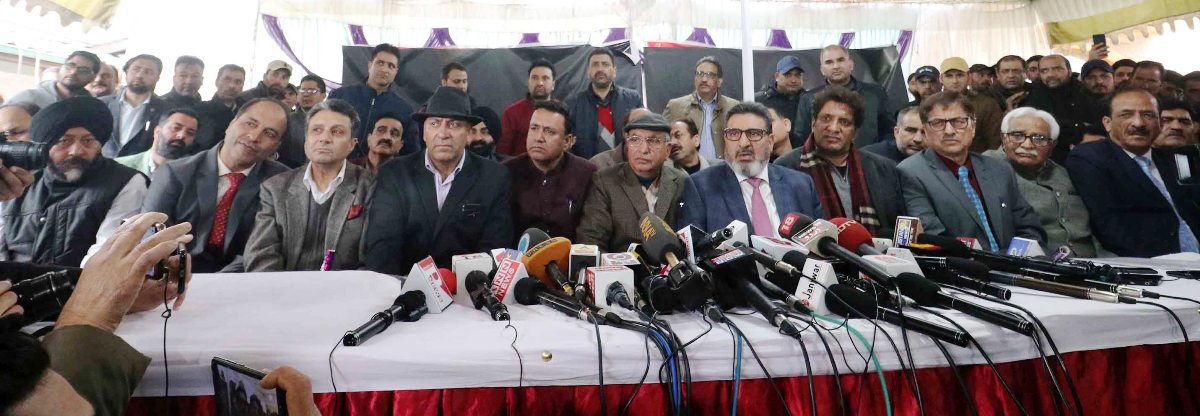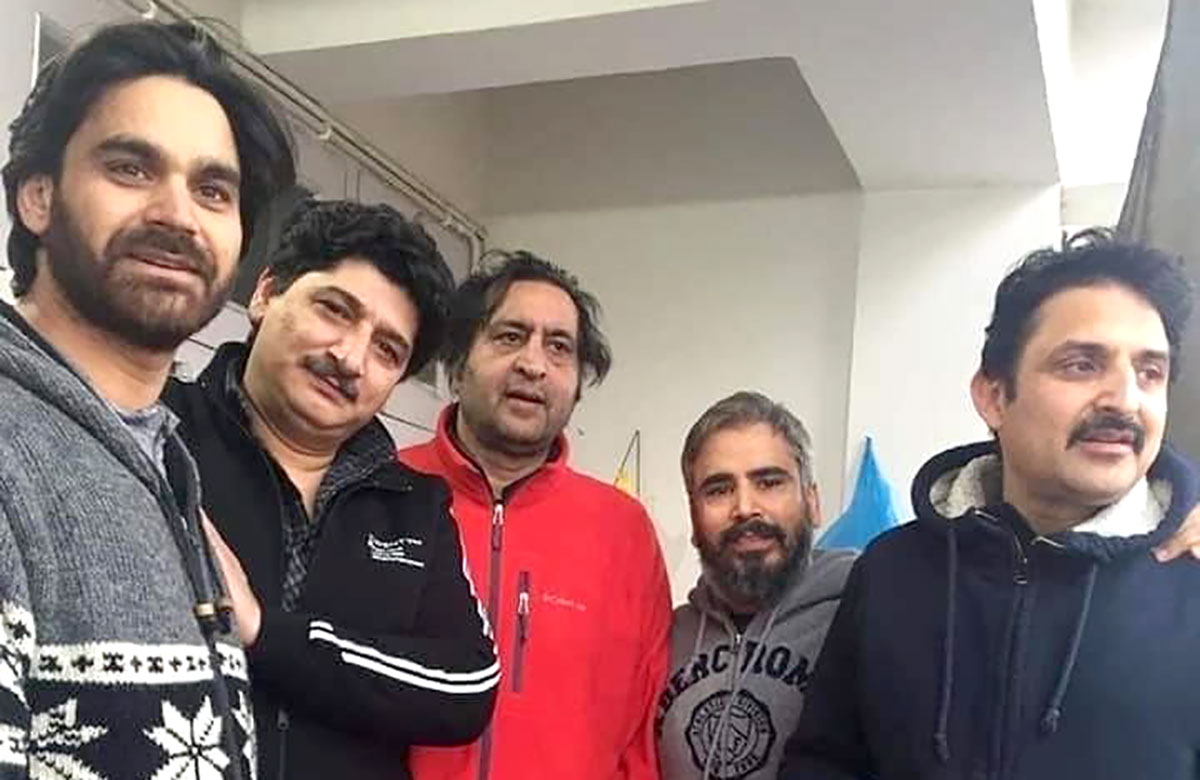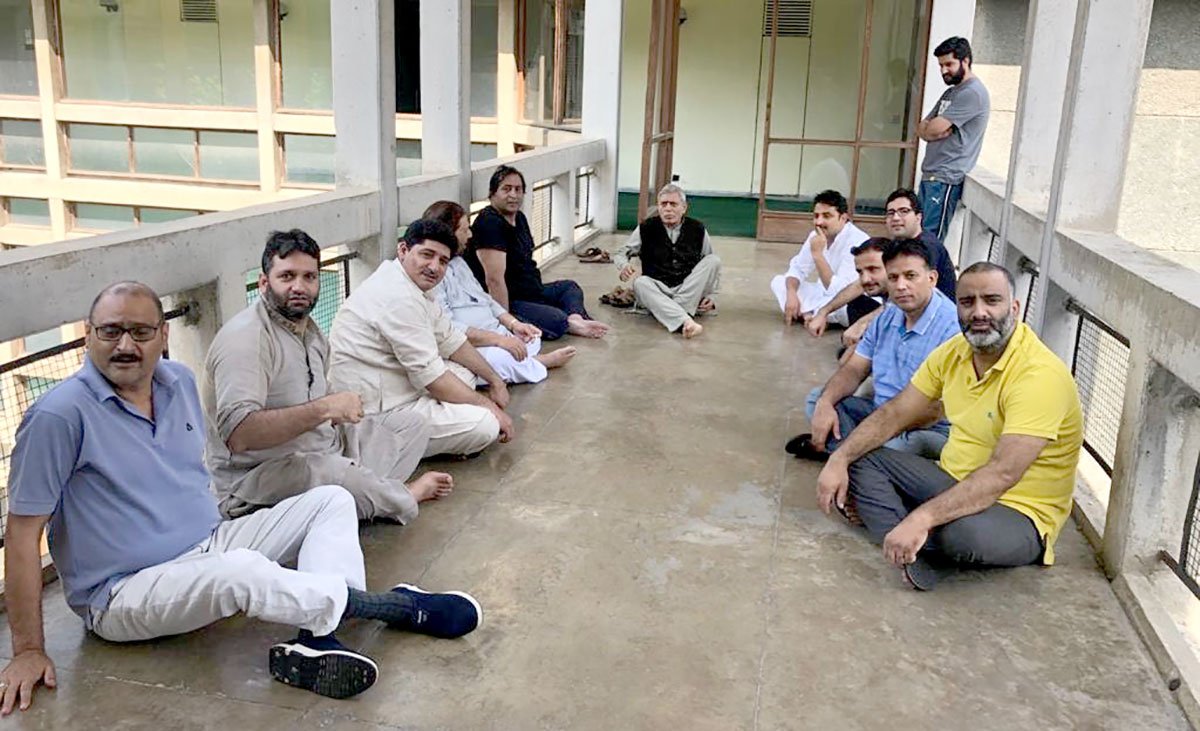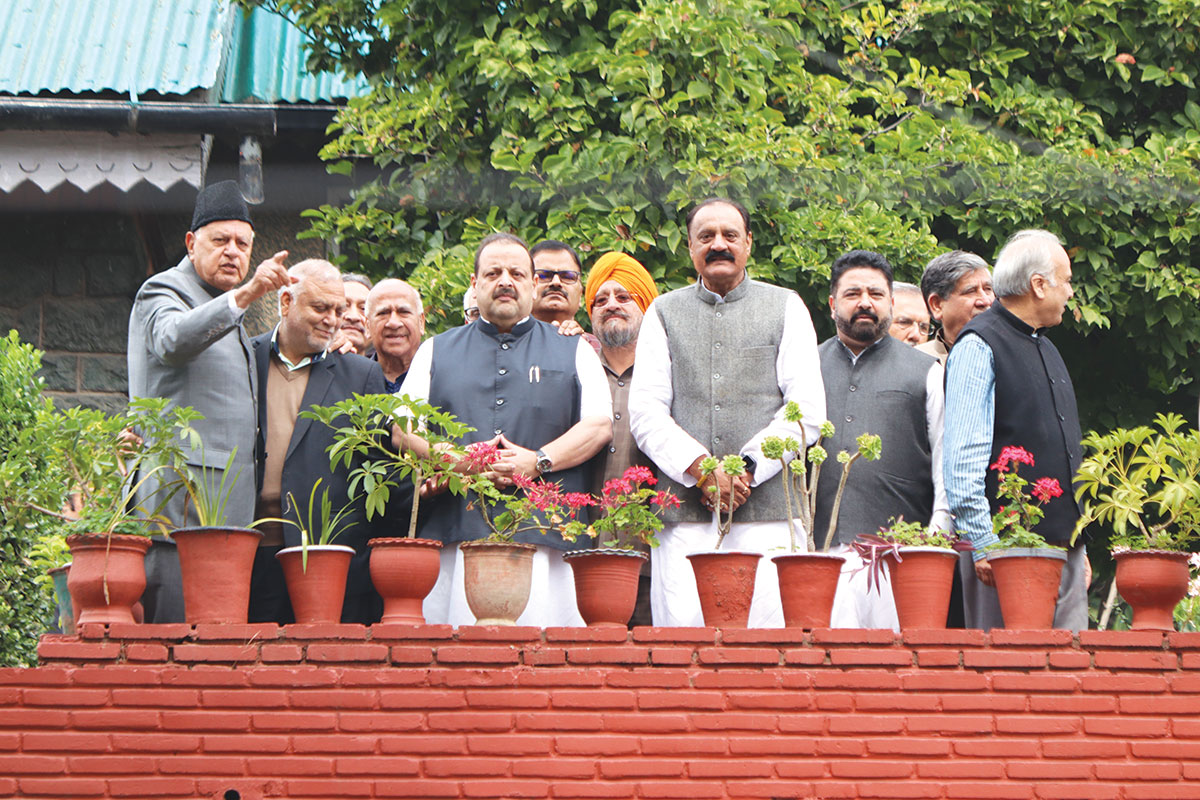With almost half of her cabinet and a huge section of lawmakers out of the PDP, will the Mufti Sayeed’s dream project survive the new test of the new times, reports Masood Hussain

The Apni Party launch was just not an indicator of a businessman’s clout over politics in Jammu and Kashmir. It was sort of a barometer to check the ‘health’ of the National Conference (NC) and the Peoples’ Democratic Party (PDP), the two family-driven parties that have remained the principal stakeholders to Kashmir mandate. Apni Party is not an organic structure. Seemingly, it emerged from the spoils of other parties, especially the PDP.
The Sunday launch party indicated that NC has emerged a stronger party in comparison to both PDP and the Congress. Syed Altaf Bukhari, who has been the PDP treasurer and a finance minister, has been able to manage most of his crowd from the party he worked for. He could even muster a group from the Congress too. By and large, NC remained almost impregnable. There was nobody from Sajjad Lone led Peoples Conference as well.
“When we got information that Vijay Bakaya is joining the new party, we suggested him he must join only after the party leaders are set free,” one NC veteran said. “But he said he has made a commitment and cannot wait and we did not resist.”
Bakaya joined NC after completing his tenure as the Chief Secretary. The NC nominated him to the state’s Legislative Council that has now ceased to exist after the state was downgraded into two Union Territories. “Syed Asgar Ali that people see as an erstwhile NC activist, are incorrect because he had been in the party for quite a few days,” the NC leader said. “Even when he joined us, we always saw him the PDP man.”
The launch party indicated as if it was PDP launching its sister concern. It was in this context that people are loudly asking – does PDP exist?
PDP has been facing the music for a long time. Altaf Bukhari was perhaps the first person who stayed away from the “sinking ship”, months after the BJP pulled out of the alliance. Before his expulsion, however, he had made a serious attempt to forge an all arty alliance that wanted to install an elected government in the state. But the move was torpedoed by the BJP by encouraging the Peoples Conference leader Sajad Gani Lone to also stake the claim with the help of the BJP. The then governor, Satya Pal Malik resorted to the “fax machine drama” and dissolved the assembly. Days later, Bukhari was expelled for “anti-party activities”.

Later, in anticipation of August 5, when the political class was busy creating an all-party response to possible intervention by the Lok Sabha, Bukhari kept a distance. He bounced back to activity only recently when he took a delegation of the “like-minded” people to see the delegation of EUMPs in October 2019, who had allegedly been “rented” to help Delhi manage the global concern over Kashmir. Apni Party came only after that.
Bukhari, however, was not the only person to leave PDP. Right now, most of Mehbooba’s cabinet is out of her party: Dr Haseeb Drabu, Altaf Bukhari, Imran Raza Ansari, Choudhary Zulfikar Ali, Syed Basharat Bukhari, Javed Mustafa Mir. Mehbooba is left with Naeem Akhter (in jail), Ghulam Nabi Lone, Abdul Rehman Veeri, Pir Mansoor, Farooq Andrabi, Sartaj Madni (all in political quarantine) and other relatives.
The Apni Party launch was looking like as if the PDP was creating its sister affiliate because most of the faces belonged to the PDP – Ghulam Hasan Mir (a PDP co-founder, who had left the party much earlier), Mohammad Ashraf Mir, Javed Ahmad Beg, Raja Manzoor, Zafar Iqbal Manhas, Abdul Majid Padder, Rafi Ahmad Mir, Choudhary Zulfiqar, Mohammad Dilawar Mir, Noor Mohammad Sheikh, Qamar Choudhary and Abdul Raheem Rather. Even the loyalties of the two PDP members in the Rajya Sabha – Mir Fayaz and Nazir Ahmed Laway, are being disputed as well.

Even Congress took a good hit. Two brothers Aijaz Khan and Mumtaz Khan represented two solid constituencies. Even some of the foot soldiers in Srinagar were also taken by the new party. Congress, however, has existed with all these tensions throughout, in Kashmir as well as in Jammu. Unlike Kashmir where the loyalties shift between the regional parties and Congress, in Jammu, these usual swaps take place between BJP and Congress.
Congress apart, there is a lot of debate going on over the future of the PDP. Its president who is in jail for all these months might be getting details of desertions from the newspapers or the TV. Her mother, however, is routinely meeting her twice a week and sends her home-cooked food as usual.
How does the party see such large scale desertion? “When our senior leaders switched loyalties, we did feel a sense of loss,” admitted Firdous Tak, perhaps the only PDP man, who is talking on the record, unlike most of the others. “We have left it to the time to decide who was right and who was wrong.”

Tak said for a political worker, such “overwhelming situations” offer only two options: surrender or struggle. “They availed an option and that is all right and there are many others who wish to face the pain of struggle in which, it is also possible to get consumed completely. That is what it is all about,” he asserted.
The member of the erstwhile legislative council, Tak said the PDP lost the flock unlike NC because “they are mature” and “unlike most of the PDP”. Tak said that most of the PDP members – lawmakers and ministers, were novices who were involved in politics by Mufti Sayeed and groomed to a level. “But they might have their compulsions of which I know nothing about,” he asserted.
Commentators, however, said the situation is not new. Prof Gull Mohammad Wani, one of the foremost political scientists said that Janta Dal, Jan Morcha and many other parties have already undergone this phase earlier in Jammu and Kashmir. “These are factions that are delinked with voters and ground zero and usually the outcome of state interventions,” Prof Wani said. “It was the same thing that was played up when Mufti Sayeed set up his party and political actors felt the pulse of Delhi that was unhappy over NC’s autonomy resolutions and wanted to cut it to size.”

Later, Wani said, Delhi wanted to break it but failed. That was despite Mehbooba having evolved in governance as a person who was always surrounded by relatives and sycophants. “Now they found an opportunity and they could move most of its lawmakers to the new party,” Wani said. “But it does not necessarily mean a changeover at ground zero. Earlier it was helping as people were supportive of the political forces that were seen closer to Delhi but now the central government is being seen as a threat.” This situation, Wani believes will one day force the Apni Party to come out of its pro-development and ideologically neutral status to formally adopt a political thought.
The second major development came within days after the Apni Party launch. Authorities decided against extending Dr Farooq Abdullah’s detention under the Public Safety Act by another three months. The move surprised NC leaders as much as the Apni Party. While NC remained unmoved by the launch of the new party, release of Farooq well before the Apni Party could complete its basic post-launch period is being debated almost everywhere in political circles.
Son of the Sher-e-Kashmir, whose name, the government said, is not being officially and gradually obliterated, Dr Abdullah is Jammu and Kashmir’s five times Chief Minister. He was under detention since August and for all these months he has been taken care of by his wife, Molly. Many say it has been the longest time the two have been together, especially after 1990 when the rise of militancy sent Molly to the UK.

Dr Abdullah has not been well for all these days of incarceration. He would require frequent consultations of a dentist. He has to continuously take medicine because of his kidney transplant. Barley a week before his release, Dr Abdullah underwent a surgery in his eye at the Kashmir Nursing Home, not far away from his home that was a sub-jail for all these months.
As the news spread, media reached his home. He spoke in Urdu and English, thanked people for praying for his health and release. He, however, said he will not talk on anything political unless all the political leaders including Mehbooba Mufti and those held in the MLA Hostel are not being set free. At the same time, however, he said he will be attending the Parliament, currently in session, and talk. Nobody knows what he will do and how?
His party leaders said he will be receiving delegations from his party on Saturday and Sunday and may take off to Delhi on Monday. Nobody even in his party has any idea about how the release came all of a sudden. Many think this might have been the surprise for which the External Affairs Minister Subrahmanyam Jaishankar flew to Srinagar early this week.
It is too early to say how the NC will respond to the situation. Its party is intact and no-poaching has taken place. The real question is how PDP will respond when it has the party in the doldrums.
“We have our job already drafted,” Tak said. “We do not represent an organisation but a thought process and that is more relevant to Kashmir right now unlike recent past. Our ideology has been and shall remain the process of peace, reconciliation and dialogue.” Tak said their party got an instant acceptance because “we have an ideology that is relevant to Kashmir”.

“It does mean trouble ahead and a sort of existential threat also but it is too early to conclude that it means the death of the PDP,” Prof Wani believes, insisting there are issues of ideology, even its credibility as a party and the larger suspicion that its creation was the handiwork of the deep state will dog its future. A general impression is that the August 5, the intervention has cleaned, if not cleansed, Mehbooba of the 2016 blood. “Mehbooba has a certain aura around her; she is a fighter outside the governance structure and knows mass mobilising better so it is too early to write an obituary of her party.” Many believe that though the party was initiated by Mufti Sayeed, it was built by Mehbooba.
Neither of the two political parties, however, will be able to bask under the Delhi’s glory, Wani said. Their giving up of their political ideology – greater autonomy and self-rule, will kill them faster than the poaching because Article 370 withdrawal has changed the complexion of the politics in Jammu and Kashmir. However, one thing is very obvious and challenging for both of them. NC will have to fight its historic baggage and PDP will have to fight odds to see its ideology is relevant to a changed Kashmir. Wani believes that the problem of Kashmir and the problems related to Kashmir will continue to dominate the Kashmir scene, regardless of the special provisions that were withdrawn in August. “You throw it away from windows and it will return from your door,” Wani said. “That is what has been happening on the international front in the last seven months and there is visible pressure on India, now even from Iran.”















